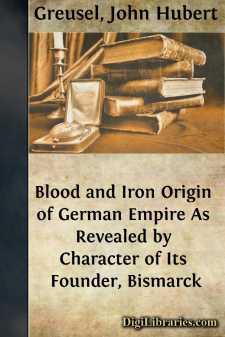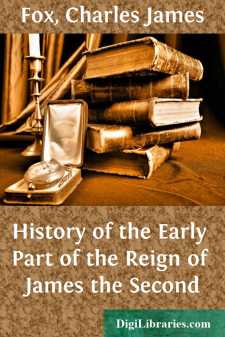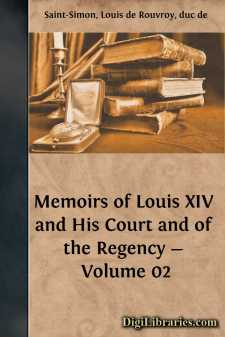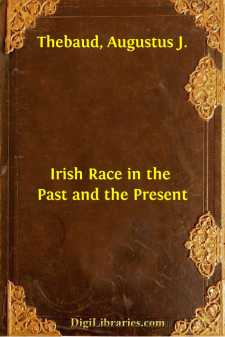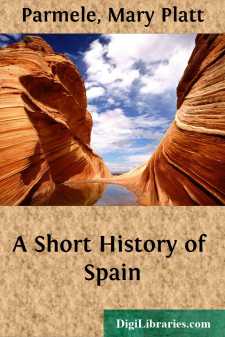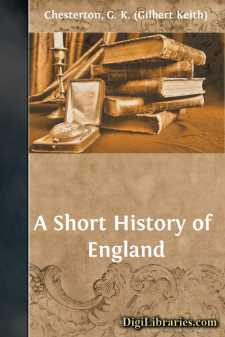History
- Africa 30
- Americas (North Central South West Indies) 50
- Ancient 68
- Asia 58
- Australia & New Zealand 8
- Canada 41
- Caribbean & West Indies 1
- Civilization 20
- Eastern Europe 12
- Europe
- Expeditions & Discoveries 60
- General 77
- Historical Geography 1
- Jewish 9
- Latin America 3
- Medieval 8
- Middle East 14
- Military 248
- Revolutionary 8
- Study & Teaching 5
- United States 353
- Western Europe 56
- World 13
Europe Books
Sort by:
CHAPTER I The Man Himself 1 Hark, Hark! The giant’s ponderous hammer rings on the anvil of destiny. Enter, thou massive figure, Bismarck, and in deadly earnest take thy place before Time’s forge. ¶ It is, it must be, a large story—big with destiny! The details often bore with their monotony; they do not at all times march on; they drag, but they do indeed never halt permanently; ahead always is...
more...
by:
Jonathan Swift
INTRODUCTION Of late years, that is to say, within the last thirty odd years, there has existed a certain amount of doubt as to whether or no the work known to us as "The History of the Four Last Years of the Queen," was really the product of Swift's pen. That a work of this nature had occupied Swift during his retirement at Windsor in 1713, is undoubted. That the work here reprinted from...
more...
by:
John Ruskin
PREFACE. The long abandoned purpose, of which the following pages begin some attempt at fulfilment, has been resumed at the request of a young English governess, that I would write some pieces of history which her pupils could gather some good out of;—the fruit of historical documents placed by modern educational systems at her disposal, being to them labour only, and sorrow. What else may be said...
more...
INTRODUCTION. Fox’s “History of the Reign of James II.,” which begins with his view of the reign of Charles II. and breaks off at the execution of Monmouth, was the beginning of a History of England from the Revolution, upon which he worked in the last years of his life, for which he collected materials in Paris after the Peace of Amiens, in 1802—he died in September, 1806—and which was first...
more...
To return now to the date from which I started. On the 6th of August, 1695, Harlay, Arch-bishop of Paris, died of epilepsy at Conflans. He was a prelate of profound knowledge and ability, very amiable, and of most gallant manners. For some time past he had lost favour with the King and with Madame de Maintenon, for opposing the declaration of her marriage— of which marriage he had been one of the...
more...
This life of Napoleon was first published in 1896 as a book: for the years 1895-96 it ran as a serial in the pages of the Century Magazine. Judging from the sales, it has been read by many tens if not hundreds of thousands of readers; and it has been extensively noticed in the critical journals of both worlds. Throughout these fourteen years the demand has been very large and steady, considering the...
more...
by:
Thomas Carlyle
Chapter I. — DOUBLE-MARRIAGE IS DECIDED ON. We saw George I. at Berlin in October, 1723, looking out upon his little Grandson drilling the Cadets there; but we did not mention what important errand had brought his Majesty thither. Visits between Hanover and Berlin had been frequent for a long time back; the young Queen of Prussia, sometimes with her husband, sometimes without, running often over to...
more...
"In the Southern Ocean, the greater part of Australia, Tasmania, Norfolk, Van Diemen's Land, New Zealand, and many other groups of Oceanica are hers. "What other state can compete with her in the management of colonies, and in the selection of situations from which she could command the sea? Jersey and Guernsey are her keys of the Straits of Dover; from Heligoland she can open or shut the...
more...
CHAPTER I. No name is more fraught with picturesque and romantic interest than that of the "Spanish Peninsula." After finishing this rare bit of handiwork nature seems to have thrown up a great ragged wall, stretching from sea to sea, to protect it; and the Pyrenees have stood for ages a frowning barrier, descending toward France on the northern side from gradually decreasing heights—but on...
more...
INTRODUCTION It will be very reasonably asked why I should consent, though upon a sort of challenge, to write even a popular essay in English history, who make no pretence to particular scholarship and am merely a member of the public. The answer is that I know just enough to know one thing: that a history from the standpoint of a member of the public has not been written. What we call the popular...
more...


